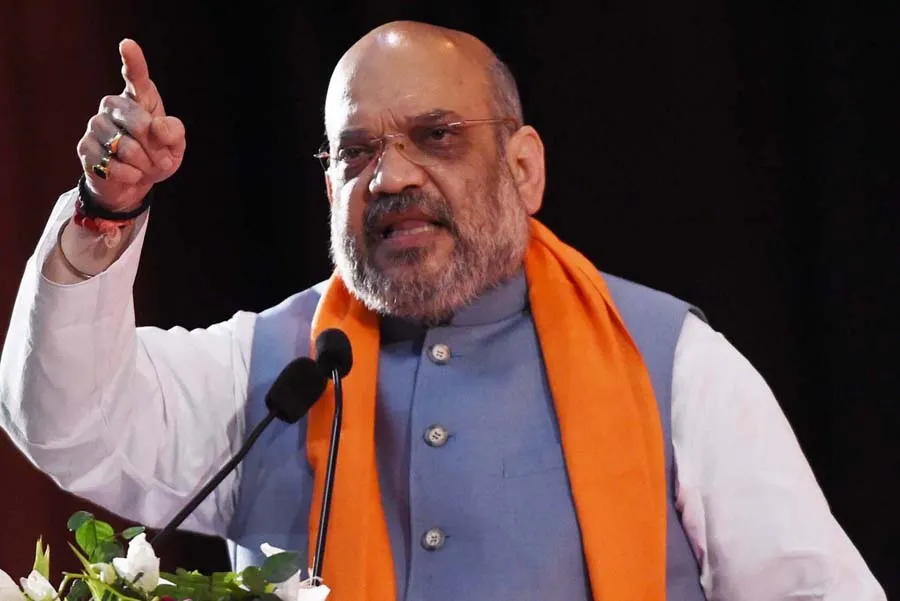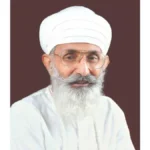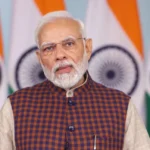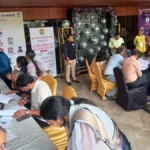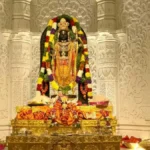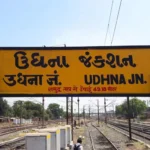NEW DELHI: The Union Home Minister said on Sunday that Parliament and legislative assemblies are places for discussion and debate, but it is not right to prevent the house from functioning under the guise of protest for narrow political gains.
He made these remarks while addressing the All India Presiding Officers’ Conference. This came three days after the monsoon session of Parliament saw very little work due to repeated disruptions and adjournments caused by opposition protests. The Home Minister also said that when there is limited discussion in Parliament, the house’s contribution to nation-building is affected.
He said, “There must be discussion and debate in a democracy, but it is not right to prevent the house from functioning under the guise of protest for someone’s narrow political gains. The opposition should always remain restrained.”
He said, “But if the house is not allowed to function day after day or session after session under the guise of protest, it is not right. The country will have to think about this, the people will have to think about this, and elected representatives will have to think about this.”
He said that all discussions should have some meaningful purpose and everyone should work towards enhancing the dignity and respect of the chair. He said, “We must work to provide a fair platform for raising public issues. The arguments of both the ruling party and the opposition should be fair. We must ensure that the house is run according to the rules and regulations of the respective house.”
Referring to the humiliation of Draupadi, a character from the Mahabharata, in Hastinapur, he said that whenever the dignity of the house has been compromised, the country has seen terrible consequences.
The Home Minister praised India’s democratic tradition since independence and said that democracy’s roots here are so deep that not a drop of blood has been shed during changes of power, while in many countries the democratic situation has deteriorated over the years.
He also paid tribute to Vithalbhai Patel, the first elected Indian president of the Central Legislative Assembly. He said that exactly 100 years ago today, the great freedom fighter Vithalbhai Patel was appointed president of the Central Legislative Assembly, marking the beginning of India’s legislative history.
He said that the contribution of Vithalbhai Patel, brother of Sardar Vallabhbhai Patel, has faded over time. He said, “If the country’s freedom struggle was important, then running the country and establishing legislative processes is equally important. Vithalbhai Patel played a crucial role in establishing and strengthening democracy even during difficult times. We should all remember this.”
Parliament
The term “Parliament” most commonly refers to the Palace of Westminster in London, the meeting place of the UK’s House of Commons and House of Lords. The current Gothic Revival structure was largely rebuilt in the mid-19th century after a fire destroyed much of the old palace, though parts like Westminster Hall date back to 1097. It stands as a symbol of British democracy and its long, evolving parliamentary tradition.
All India Presiding Officers’ Conference
The All India Presiding Officers’ Conference is a significant constitutional forum, first convened in 1921, where the Presiding Officers of the Indian Parliament and State Legislatures meet. It serves as a platform to discuss and find solutions to common problems related to the functioning of these legislative bodies, aiming to strengthen parliamentary procedures and democracy in India.
Hastinapur
Hastinapur is an ancient city in northern India, mentioned in the Hindu epic Mahabharata as the capital of the Kuru Kingdom. It is traditionally believed to be the site of the great Kurukshetra War between the Pandavas and Kauravas. Today, it is an important pilgrimage site, home to numerous modern Jain and Hindu temples.
Mahabharata
The Mahabharata is not a physical place but a foundational epic of Hindu literature from ancient India. Composed in Sanskrit, it is one of the longest poems ever written and tells the story of a great war between two groups of cousins, the Pandavas and the Kauravas. It is a profound religious and philosophical text, most famously containing the Bhagavad Gita.
Draupadi
Draupadi is a legendary figure in the Hindu epic Mahabharata, not a physical place. She was the wife of the five Pandava brothers and is a central character known for her strength, intelligence, and pivotal role in the narrative of the great Kurukshetra War.
Central Legislative Assembly
The Central Legislative Assembly was the lower house of the Imperial Legislative Council, which served as the legislature for British India. It was established by the Government of India Act 1919 and became a significant forum for Indian elected representatives to debate and oppose colonial policies. It was dissolved in 1947 upon India’s independence and the establishment of its Constituent Assembly.
Vithalbhai Patel
Vithalbhai Patel was not a place or cultural site, but a prominent Indian political leader. He was an independence activist and the elder brother of Sardar Vallabhbhai Patel, serving as the President of the Indian Legislative Assembly. He is remembered for his significant contributions to India’s freedom struggle and legislative development.
Sardar Vallabhbhai Patel
Sardar Vallabhbhai Patel was a key leader in India’s independence movement and its first Deputy Prime Minister. The cultural site most associated with him is the Statue of Unity, the world’s tallest statue, erected in his honor in Gujarat, India. It commemorates his pivotal role in unifying hundreds of princely states to form the modern Republic of India.

